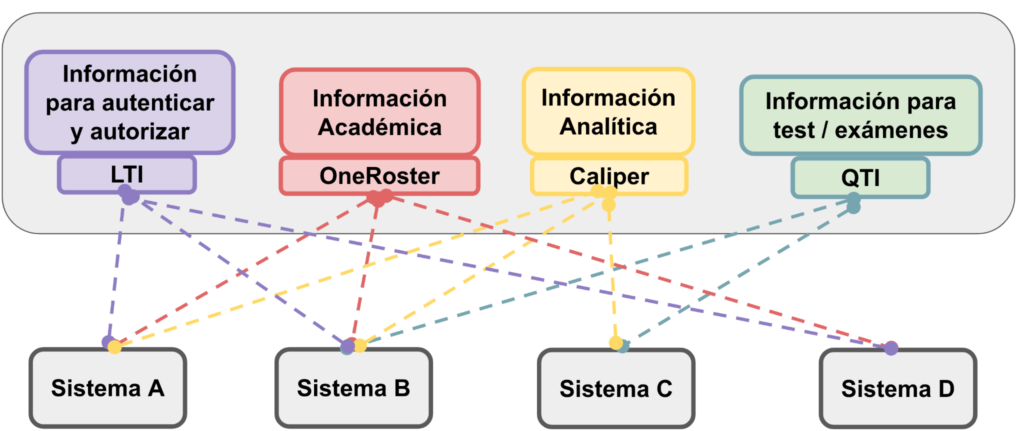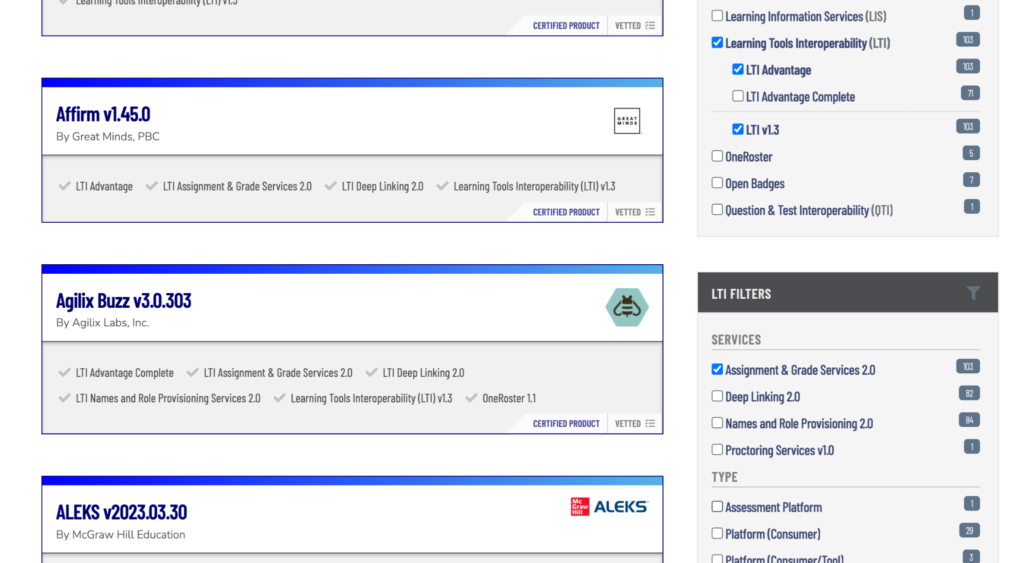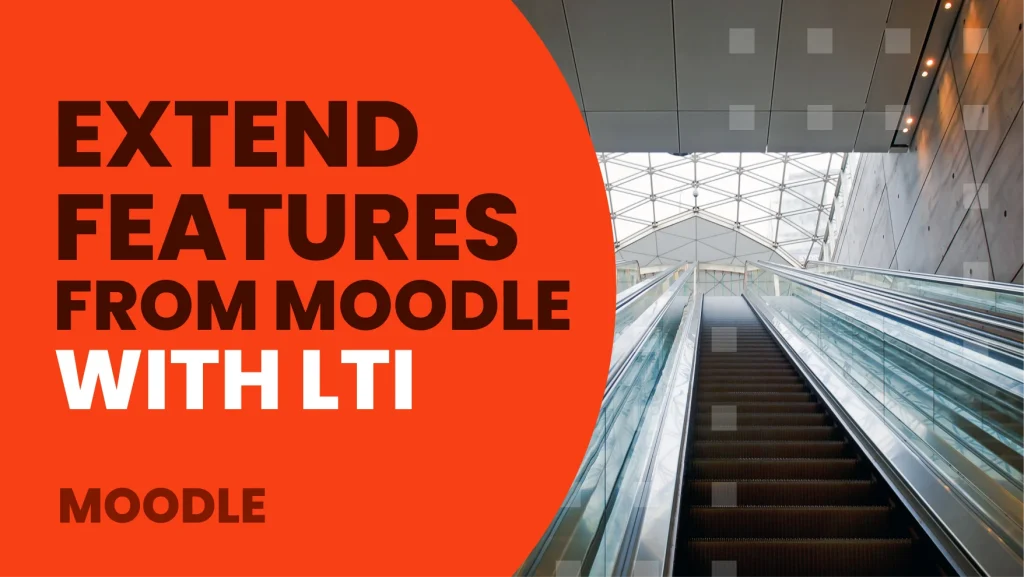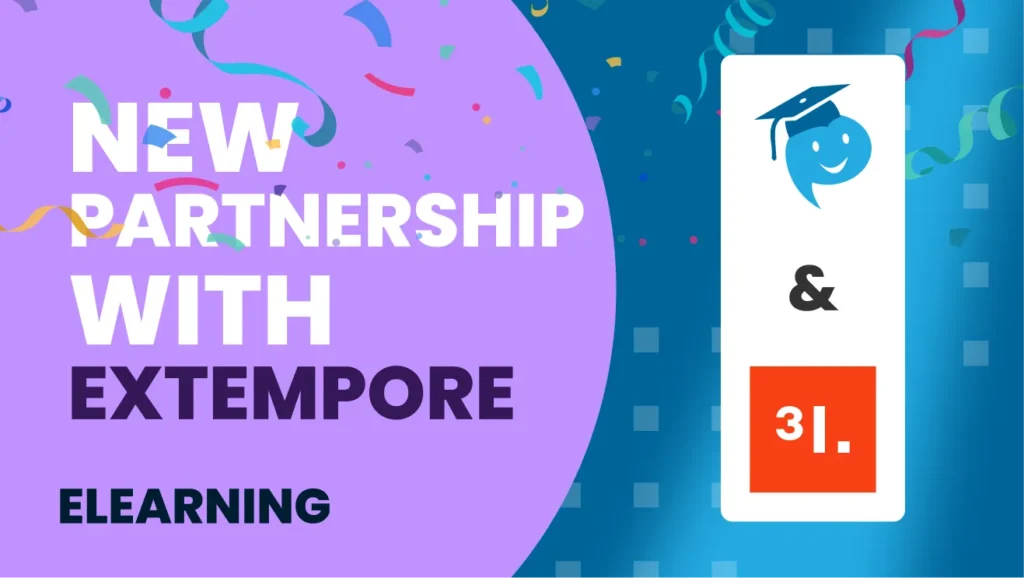If you think about a real natural environment, we have an ecosystem that is always stable and balanced if it is not exposed to significant external shocks. Nowadays we have very complex and connected systems, so we have an ecosystem of applications.
When we think about technology, the same thing happens, we have a set of integrated and well-functioning systems. But what if we add a new system? Integrations and the impact of integrations need to be reviewed. This is where standards come in to minimise the impact.
1Edtech, as a community dedicated to technological progress in education, promotes the adoption of open standards such as LTI. The standard will allow us to integrate external applications and use services to get students into the classroom, return grades, etc.
OneRoster, Caliper and QTI 3 and Assessment provide a solid foundation for interoperability and data management in education systems.
OneRoster
It is designed to manage user, course and enrolment data in education systems. It enables educational institutions and educational technology providers to exchange information about users (students, teachers, etc.), courses, and enrolments between different Learning Management Systems (LMS), Student Information Systems (SIS), and other educational applications in a standardised way.
Caliper
It is used to collect and report data on student activity and the use of educational resources within a digital learning environment. This includes information on student interaction with multimedia content, participation in online activities, progress in courses, and other relevant data to assess performance and improve the learning experience.
QTI 3 and Assessment
This standard is used to represent and exchange digital quizzes and tests between different learning management systems, question banks and other educational tools.

LTI INTRODUCTION
Why open standards?
- Easy access to resources.
- Improved product selection.
- Increased agility.
- Effortless technology connections.
- Reduce the cost of connectivity and data exchange for everyone.
- No vendor lock-in.
- Increased variety of technology partners.
Why choose the 1EdTech community?
- Non-profit consortium
- Member ownership and control
- Coherent and reliable ecosystem representing all stakeholders.
1EdTech Community Certification
- A member may certify its developments.
- Guarantees standard integration.
- Displayed in a directory.
- Renewed every 12 months.

What is LTI 1.3?
LTI 1.3 is a complex specification that goes beyond a simple single sign-on (SSO) mechanism. It facilitates the creation of “super-links” between educational tools, allowing integration at different levels: content, users and qualifications.
It aims to provide a seamless user experience for teachers and students, with simplified and secure access and authentication, hosting of learning resources from multiple providers, and feedback and data across tools and systems.
LTI security
LTI 1.3 uses secure and modern protocols.
Designed to industry standards:
- Asymmetric keys (JWSK)
- OpenId idtokens (iss, sub, kid, etc)
- Oauth2
- Multi-tenant (deployment_id)

Deep Linking
With Deep Linking, developers of educational tools can provide direct links to specific resources within their application from within the platform. For example, a teacher could add a direct link to a specific activity within an external tool, such as a quiz, interactive simulation, or multimedia resource, within his or her course in the LMS.
LTI’s Deep Linking service enables a more seamless and consistent integration of external tools into online learning environments, making it easier for educators to create more personalised and effective learning experiences for students. It also helps developers of educational tools to optimise the user experience by allowing users to access relevant content directly with just a few clicks.

Assignments and Grades Service
This service facilitates the creation, submission and assessment of assignments and activities within the e-learning platform environment using external tools. Teachers can assign tasks to students from within the platform and students can complete these tasks using the integrated external tools.
Once students have completed assignments, grades and comments can be sent back into the virtual learning space via LTI’s Assignments and Grades service, allowing teachers to review and assess student work directly from their main system.
This provides a more seamless integration between external learning tools and the LMS, allowing educators to use a wider variety of resources and tools to enrich the learning experience for students while maintaining the ability to centrally manage and assess work from within the eLearning system.

Names and Roles Service
LTI Names and Roles allow external learning tools to obtain information about the users enrolled with a course, enabling a more personalised and contextualised integration of the tools into the online learning environment.

How to bulk enrol students in Moodle [Vídeo]
In short, the adoption of standards such as LTI not only facilitates the integration of education systems, but also improves the teaching and learning experience for all concerned. In the 1EdTech community, we work to ensure that these integrations are consistent, reliable and beneficial to all stakeholders in the education ecosystem.





